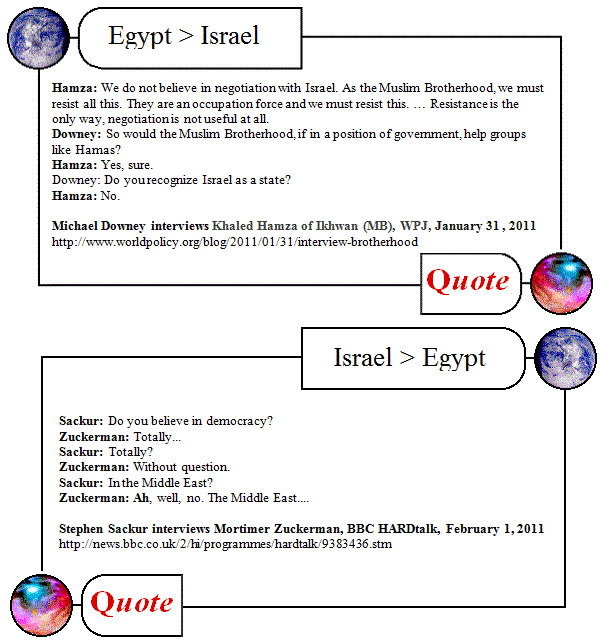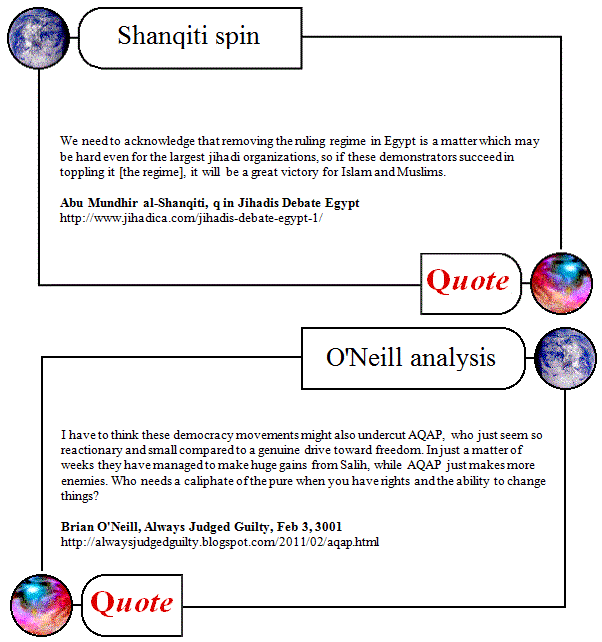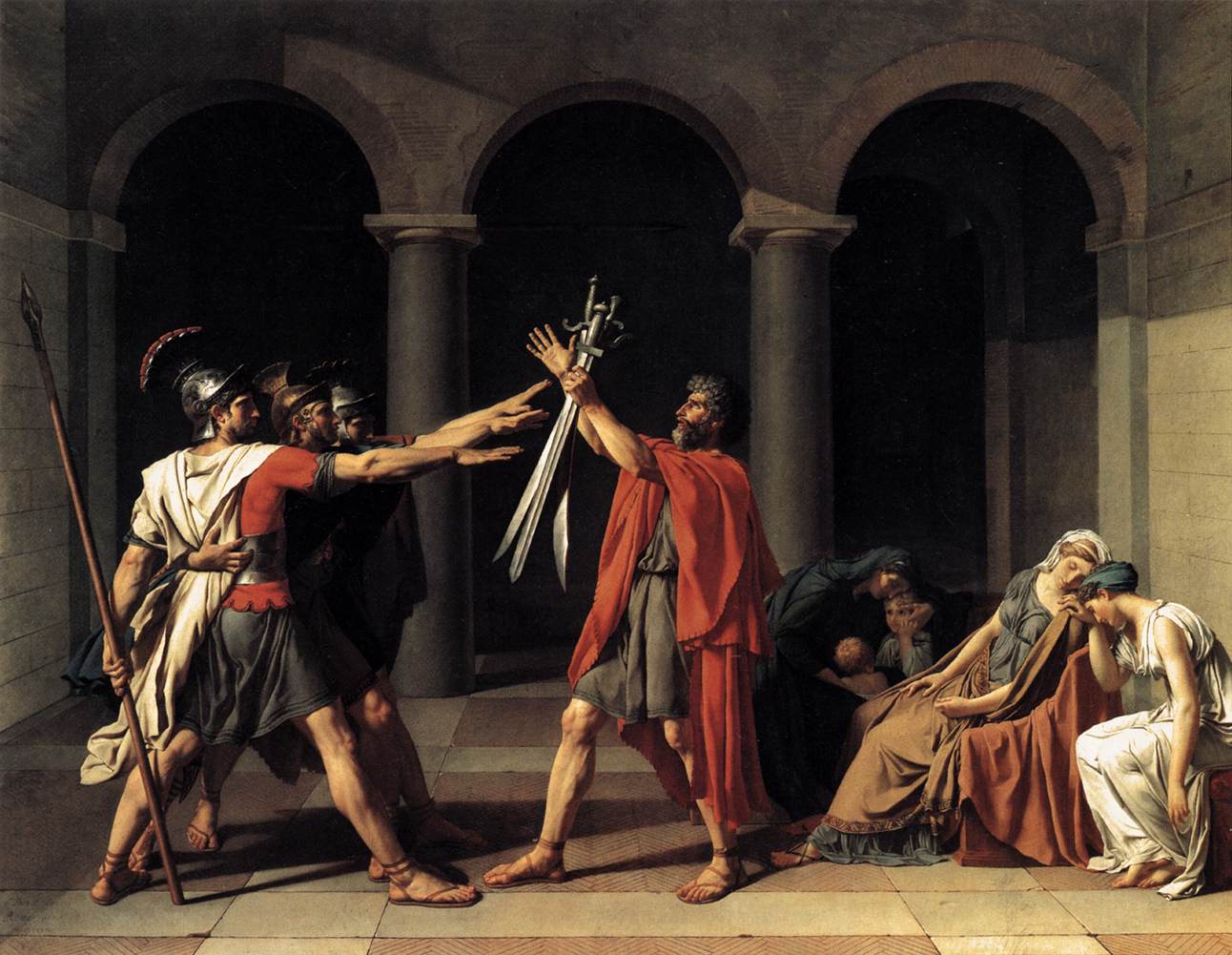[ by Charles Cameron [hoping Zen’s ISP will be back up shortly] — cross-posted from ChicagoBoyz ]
Someone posted an excerpt from an interview with Khaled Hamza, the webmaster of the Muslim Brotherhood, as a comment on an earlier post of mine on ChicagoBoyz, where I also blog, and I was interested enough to track the original interview down, and have presented the key points of the excerpt here in Quote #1.

I am pairing it, in Quote #2, with an excerpt from an interview the BBC recently conducted with Mortimer Zuckerman – because I find the two quotes taken together suggest something of the complexity of the breaking situation in the Middle East.
*
I’d like to float a trial balloon / try a though experiment, if I might. And since I’m more “tail” than “left” or “right wing”, I’ll be posting this in more than one place, and hope to get comments from all sides…
On the face of it, Zuckeman is applying what’s arguably a racist double-standard. He advocates democracy, “totally” and “without question” – but not for the Egyptians, or at least not today or tomorrow.
On the face of it, the Egyptian public seems distinctly unenthused by Mubarak’s regime and will, in a democratic election, presumably vote in a fair number of Muslim Brotherhood representatives – though it’s by no means clear that they would be in the majority, and their present ideology in any case is closer to the processes of electoral politics than those of violent jihad.
So there is reason for Israel to be concerned, and reason for those who support democracy to see some hope for democracy, in the ongoing events in Egypt.
Let me put it this way: Quote #1 illustrates why Zuckerman might make the remarks quoted in Quote #2, while Quote #2 illuminates why Hamza might make the remarks quoted in Quote #1.
*
And here’s the thought experiment — I’d like to come at this from a Maslovian angle.

Maslow’s Hierarchy of Needs
I’d like to suggest that “democracy” is an ideal, or to get away from that word with its somewhat ambiguous political connotations, an activity of the “the better angels of our nature” – and thus, from a Maslovian perspective, an aspect of a group or nation’s “self-actualization” level of interest, whereas “stability” would fall under “safety” or even “physiological”.
If that’s right, Zuckerman is at least arguably articulating a “stability first, eventual democracy would be ideal” position.
Does that “Maslovian” formulation throw any additional light on the situation?
*
The problem with the position I just described is nicely articulated by Mohammad Fadel at the very end of a Foreign Policy post, Can Black Swans lead to a sustainable Arab-Israeli peace? — and it’s only his conclusion I’m quoting here:
Tunisia and Egypt have demonstrated categorically that any peace which relies on the stability of police states is doomed from the outset.
If a butterfly flapping its wings in Brazil can in theory cause a tornado in Texas – heaven alone knows what someone blinking in Cairo or Jerusalem or Washington can do.
Myself, I pray for empathy, which seems a reasonable request, I hope for wisdom, which seems a great deal more chancy — and I long for peace.
In the current environment of hatred and mistrust, that seems entirely beyond the capacity of anyone’s present thinking to achieve.




 security has been subordinated to the HR nostrums of the day at CIA. Jones effectively outlined how “the emperor has no clothes.” Not so much inept as indifferent. As someone operating under “deep cover” in the clandestine branch, away from the support and comforts of consular life, he was certainly qualified to note the career paths and day-to-day obsessions of the “home office” and his colleagues. While he didn’t name names, he described enough duplicity and lassitude in the CIA’s management and staffing to earn the undying enmity of “tap dancers” and “clock watchers” alike.
security has been subordinated to the HR nostrums of the day at CIA. Jones effectively outlined how “the emperor has no clothes.” Not so much inept as indifferent. As someone operating under “deep cover” in the clandestine branch, away from the support and comforts of consular life, he was certainly qualified to note the career paths and day-to-day obsessions of the “home office” and his colleagues. While he didn’t name names, he described enough duplicity and lassitude in the CIA’s management and staffing to earn the undying enmity of “tap dancers” and “clock watchers” alike.
 officials out of those regions (the book to read is
officials out of those regions (the book to read is 

